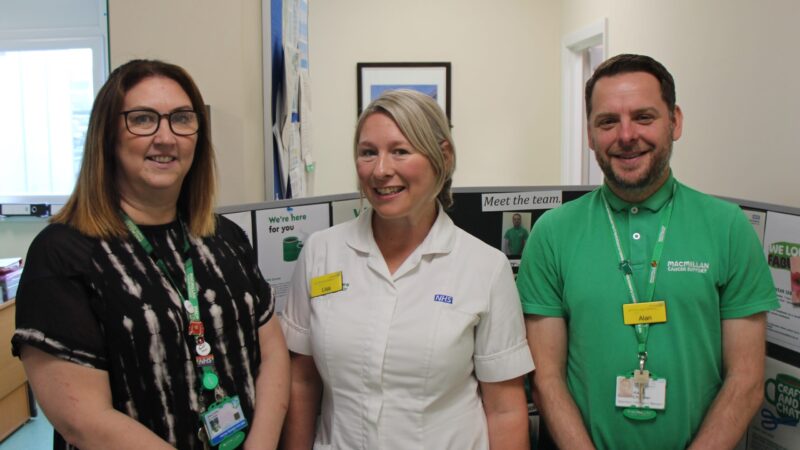
Our Trust has launched a new course for people to gain and give support after cancer treatment.
HOPE (Help Overcoming Problems Effectively) is a group-based programme which supports people to overcome obstacles or issues following treatment for cancer. It combines positive psychology, mindfulness and group therapy to allow cancer patients to explore and adapt to their ‘new normal’.
The Trust has successfully implemented the course in collaboration with Macmillan Cancer Support.
Launched in February 2024, 20 cancer patients have so far benefitted from the programme – with all sessions fully booked for the remainder of the year and more people on a waiting list for future dates.
Alan Chandler is Macmillan information manager at the Trust and a facilitator for the new course. He said: “HOPE is very much about trying to get people with cancer to talk.
“It’s facilitated by staff but run in a way that patients take charge – the aim is to get me to shut up and the patients opening up and talking to one another to overcome any obstacles or issues they’re facing.”
The course covers a range of topics, including:
- Managing stress
- The impact of cancer on relationships
- Coping with uncertainty
- Refocusing priorities
The end goal is for groups to find support in one another, with hopes that they would continue to connect after the six week course ends.
“It does what it says on the tin”
HOPE is run over six sessions, each lasting two and a half hours, with around 12 patients per group. Sessions take place off hospital grounds at Alice House Hospice in Hartlepool and Butterwick Hospice in Stockton-on-Tees.
Patients at the Trust are referred by those involved in their treatment and care. Following a conversation with Alan, each patient interested is asked to make a commitment to attend all six sessions – to allow the group to bond and get to know one another.
Cancer care coordinator Lisa Watson is also trained as a HOPE facilitator. She said: “We’ve completed two courses now and seen massive changes in patients so far.
“In the last few years, especially with Covid, people have become much more conscious about isolating when they have cancer – which then has an impact after they’ve finished treatment. HOPE is a way for them to be social again, to realise that life’s still there to be lived.”
Alan continued: “It does what it says on the tin – it’s giving people hope.”
The Trust has four HOPE facilitators currently in place, all with a background in cancer care. Plans are in place to train two more members of staff to accommodate more sessions.
Cancer support at the Trust
Our cancer information centres provide a confidential walk-in service for anyone with questions or concerns about cancer.
The centres offer support to anyone affected by cancer – whether you’re undergoing treatment yourself or are supporting a loved one.
Find out more.